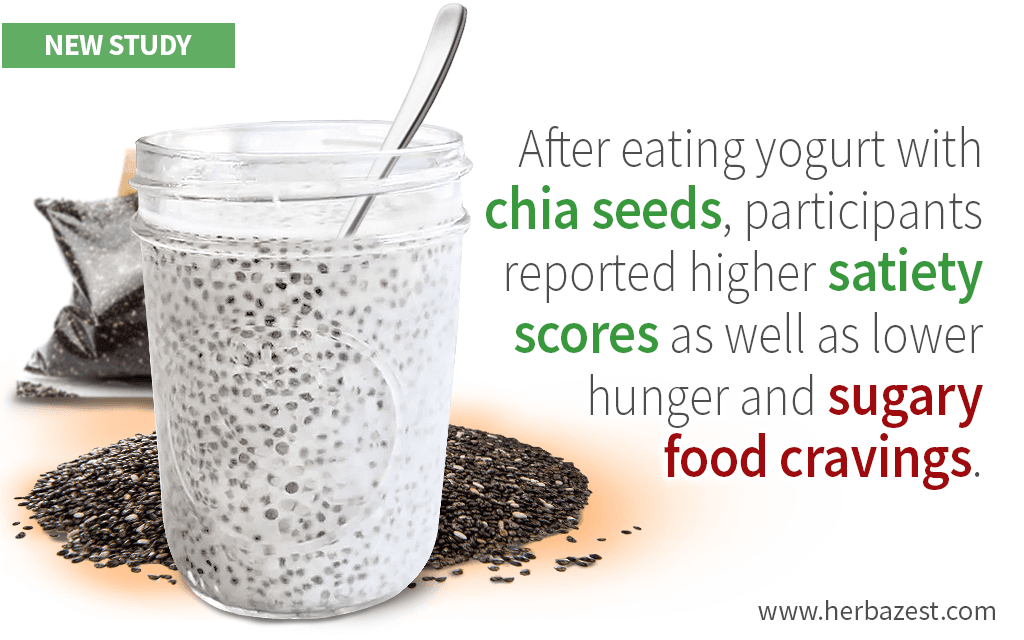Despite their small size, chia seeds are true nutritional powerhouses, offering protein, healthy fats, fiber, and several micronutrients. Thanks to their blood pressure- and blood sugar-lowering effects, they are a nutritious addition to one's diet.
Several studies have also shown that eating fiber helps increase satiety and curb appetite between meals.1 In this context, chia seeds seem like the ideal functional food for weight loss. Turkish researchers put their theory to the test and evaluated the effects of eating chia seeds on short-term satiety.
The Study
This trial involved 24 healthy female participants, between the ages of 19 and 25. It took place at the Hacettepe University in Ankara, Turkey.
Following a cross-over trial design, researchers offered each participant three different treatments on three different test days. At 8.30 am, participants were served breakfast (white bread with cheese and tea), followed by one of the three types of mid-morning snacks:
- Yogurt with no chia seeds
- Yogurt with 7 grams of chia seeds
- Yogurt with 14 grams of chia seeds
After two hours, they were given an ad libitum lunch, which means they were free to eat until they were full and refill their plates as many times as they wanted to.
There were two objectives of this trial. First, researchers wanted to see if eating chia seeds as a snack will cause people to be less hungry and eat less at the subsequent meal. Second, they were curious if different amounts of chia seeds have any effects on people's mood.
The Results
On the days the participants consumed chia seeds, they reported significantly lower scores for hunger and higher scores for satiety. They also had lower scores for other tested parameters, such as desire for sugary foods, prospective food consumption, and amounts of food that could be consumed.
Also, the average energy intake at lunchtime was reduced by about 25% following the chia seed snacks. No reduction was observed after eating yogurt without chia seeds.
Researchers found that eating chia had no effect on mood states.
What Does this Mean?
Published in the Nutrition Research and Practice journal, the results of this clinical trial have shown that eating chia seeds may induce satiety and reduce hunger.
By extending satiety and curbing one's appetite, chia seeds may act as an effective functional food for weight loss as well as healthy weight maintenance. Moreover, they're not only widely found and relatively inexpensive, but they can also be easily added to various dishes.
Other herbs that may help keep you full for longer are oats, lentils, beans, and quinoa.
Sources
- Nutritional Research and Practice, Chia seed (Salvia Hispanica L.) added yogurt reduces short-term food intake and increases satiety: randomized controlled trial, 2017
Footnotes:
- Journal of the American College of Nutrition. (2013). The effect of fiber on satiety and food intake: a systematic review. Retrieved December 2, 2021 from https://pubmed.ncbi.nlm.nih.gov/23885994/





